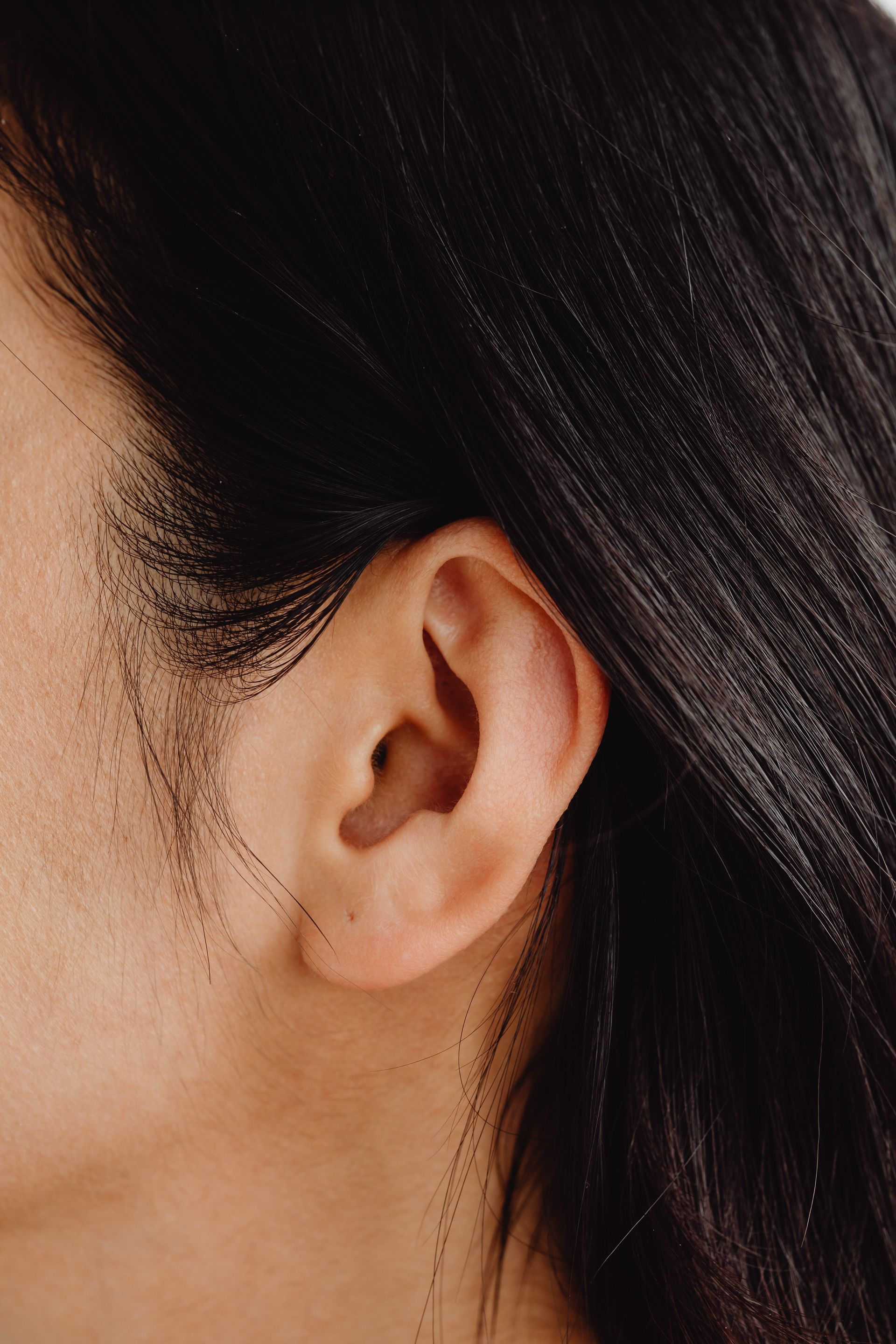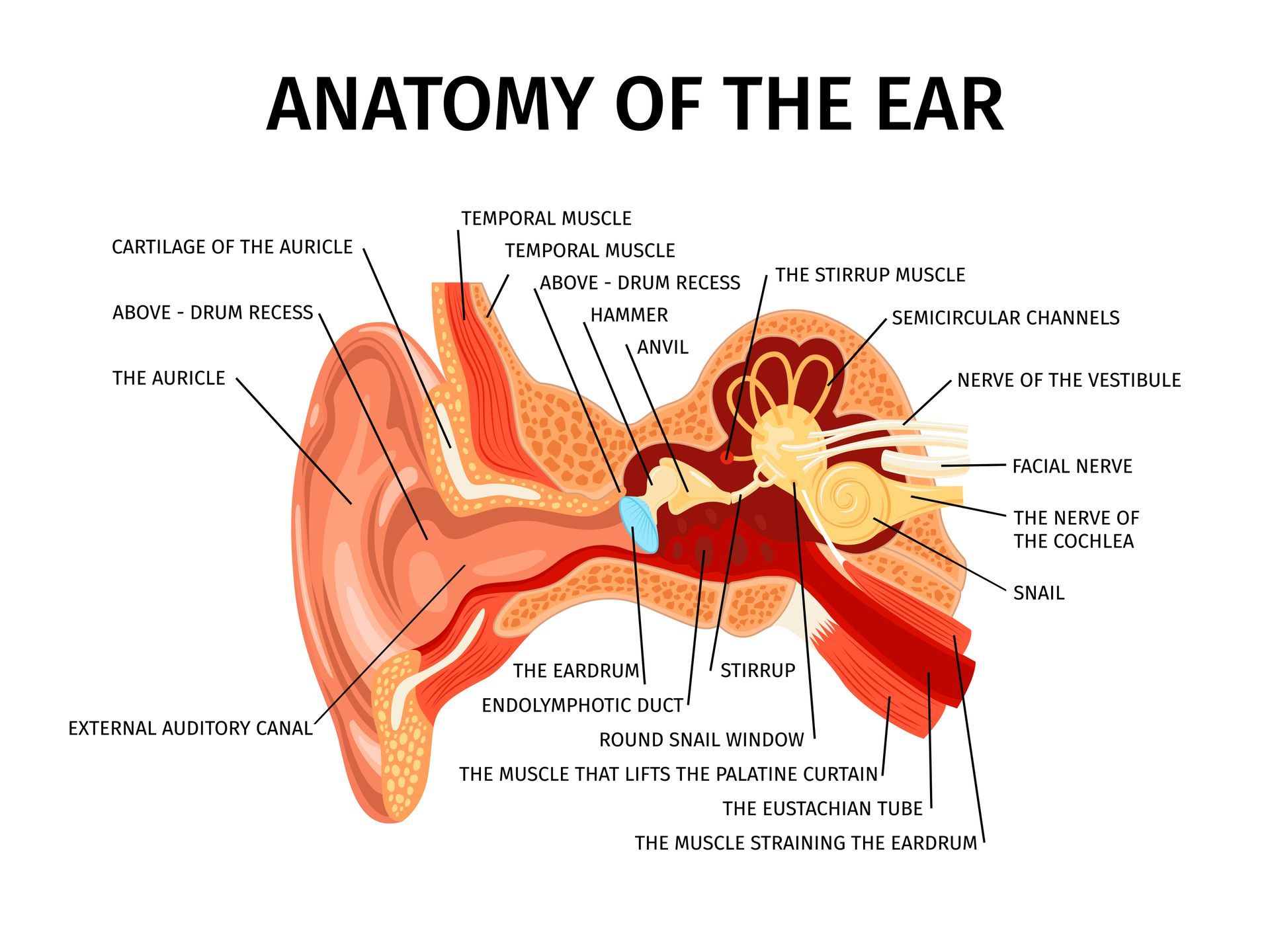Have you heard?
The reality is that hearing loss can be uncomfortable, socially isolating, lead to cognitive decline, and and it can happen suddenly and at any age. We may to take our hearing for granted, but there are ways to proactively care for our ears before problems develop.
Exposure to noise
An obvious preventative measure is to limit our exposure to noise. For example, when listening to music, it is recommend to listen at no more than 50%-60% volume, and for less than an hour at a time. Similarly, if attending a loud concert, going out to a bar with live music, or using a leaf blower, taking 5 or 10 minute breaks away from the noise can help. Another option is to put on ear plugs that filter out extreme noise, or use noise-cancelling headsets that can block ambient noise.
The general rule of thumb is that prolonged exposure to above 85 decibels without protection can harm hearing. Surprisingly, some restaurants can register at 85 to 90 decibels, and depending on how close you are to fireworks, they can come in at 150 decibels! Ideally, being in environmenets below 70 decibels is best.
The National Institute for Occupational Safety and Health (NIOSH), part of the Centers for Disease Control and Prevention (CDC), developed the
NIOSH Sound Level Meter (SLM) app (unfortunately, only for iPhones). It gives an indication of the decibel level around you, which is interesting and which is information you can act upon:
Ear wax is normal
For most people, the ear canals do a great job of cleaning themselves. Earwax, or cerumen, is a waxy oil produced by glands in our ear canals to trap dust, bacteria, and other small objects and prevent them from entering and damaging our ears. Earwax also collects the skin that's shed in the ear canals (our bodies constantly shed skin) and earwax normally makes its way out the ear naturally.
Some people may have issues with earwax if their ears produce too much, or if they have narrow ear canals, or the outer portion of the ear canal doesn't line up with the inner portion, preventing wax from coming out naturally. If you suspect an earwax problem, it is recommended to consult with your GP to learn the best earwax removal method for your particular situation.
It's ok to get our ears wet and occasionally accidentally get water in our ears. Leaning our head to one side and shaking the outer ear or hopping on that side's foot may help remove the water. It is not recommended to stick cotton swabs in our ears due to the risk of damaging the sensitive skin in the ear canal or the eardrum. Simply using a finger wrapped in tissue should suffice.
Stress, allergies, upper respiratory infections, sinus infections, congestion
A build-up of stress can put more pressure on the nerves, come with excess body heat and increased blood flow. The extra pressure can affect the inner ear and can result in a ringing or buzzing sensation known as tinnitus.
An upper respiratory infection can cause fluid build-up and/or inflammation, which can lead to a fullness sensation in the ears, ear infection, hearing loss, and/or dizziness.
With allergies, a thickened posterior nasal drainage that goes by the eustachian tube on its way to the lower parts of the throat can cause a bit of inflammation or swelling at the origin of the eustachian tube and give the feeling of fullness or pressure.
The risk of hearing loss can be reduced by treating these conditions promptly.
Activities such as air travel, swimming
Swimming, for example, can cause water to get in ears and be bothersome, and a way to prevent this is to wear earplugs when in the water. It's worthwhile noting that an audiologist can make custom-fit molds for kids and adults. Also, try to avoid swimming in dirty water.
Quick changes in pressure between the inner ear and the outside environment can also cause discomfort, as with airplane travel. Swallowing helps to alleviate this and young children can be encouraged to swallow by using a pacifier. Older kids and adults can chew gum, yawn, suck on candy, etc., again to encourage swallowing.
Diseases, medications
Hearing loss can be caused by viral diseases including mumps, measles, pertussis (whooping cough), meningitis, syphilis, and rubella (German measles). These types of infections are more common in childhood, although adults who haven’t been immunized and didn’t have the diseases in childhood may catch them too.
Medications that are thought to cause hearing loss include medications for malaria (quinine and chloroquine) and salicylates like aspirin, but the hearing loss is believed to be temporary.
Diet
In general, antioxidants help to keep us healthy and they are good for our vascular health (blood vessels), which also helps keep our ears healthy. Thus having a diet that is rich in antioxidants and flavonoids helps to combat all types of inflammatory disease: drinking green tea, eating blueberries, having broccoli, pecans, dark leafy greens, etc.
Signs of hearing loss
Here are some warning signs:
- Difficulty hearing conversations, especially in the presence of background noise.
- Frequently asking others to repeat what they’ve said.
- Not always understanding what other people are saying and answering inappropriately.
- Having difficulty hearing on the telephone.
- Nodding your head or smiling during conversations when you are not sure what has been said. Or having to strain to hear or keep up with conversations.
Additional warning signs include:
- Requiring the television or radio volume to be louder than others in the room prefer.
- Feeling that people are mumbling or have marbles in their mouth when they talk.
- Having a hard time hearing environmental sounds, such as birds chirping.
- Withdrawing from conversations and social situations because it’s too difficult to hear.
- Reading lips so you can try to follow what people are saying.
- Hearing noise within your ears or head, or ringing in your ears, which isn’t caused by an external sound source.
Talk with your GP about any of the above warning signs or if you have drainage, itching, or pain in your ears. The earlier any condition is diagnosed, the better!
Resources and References:
- NIOSH sound meter app for iOS -- https://apps.apple.com/au/app/niosh-sound-level-meter/id1096545820
- National Institutes of Health, Noisy Planet, Protect Their Hearing -- https://www.noisyplanet.nidcd.nih.gov/have-you-heard/cdc-niosh-app
- Mt Sinai on earwax -- https://www.mountsinai.org/health-library/diseases-conditions/ear-wax
- New England Health System on protecting hearing -- https://www.womenandinfants.org/blog/7-tips-for-protecting-your-hearing
- American Speech-Language-Hearing Association on ear care tips -- https://www.asha.org/news/2023/asha-offers-tips-for-ear-care-and-hearing-protection-this-summer/
- University Hospitals on how to take care of your hearing -- https://www.uhhospitals.org/blog/articles/2023/03/all-ears-how-to-take-care-of-your-hearing
- University of Queensland on tips for keeping ears happy and healthy -- https://habs.uq.edu.au/blog/2023/03/8-tips-keeping-your-ears-happy-and-healthy
- Victoria Department of Health on ways to protect your hearing -- https://www.betterhealth.vic.gov.au/health/conditionsandtreatments/ears-ways-to-protect-your-hearing
- Cleveland Clinic on ear care tips -- https://my.clevelandclinic.org/health/articles/13076-ear-care-tips
- American Medical Association on what doctors wished patients knew about proper ear care -- https://www.ama-assn.org/delivering-care/public-health/what-doctors-wish-patients-knew-about-proper-ear-care
- Stanford Medicine on the anatomy and physiology of the ear, including an overview of how we hear --
https://www.stanfordchildrens.org/en/topic/default?id=anatomy-and-physiology-of-the-ear-90-P02025







